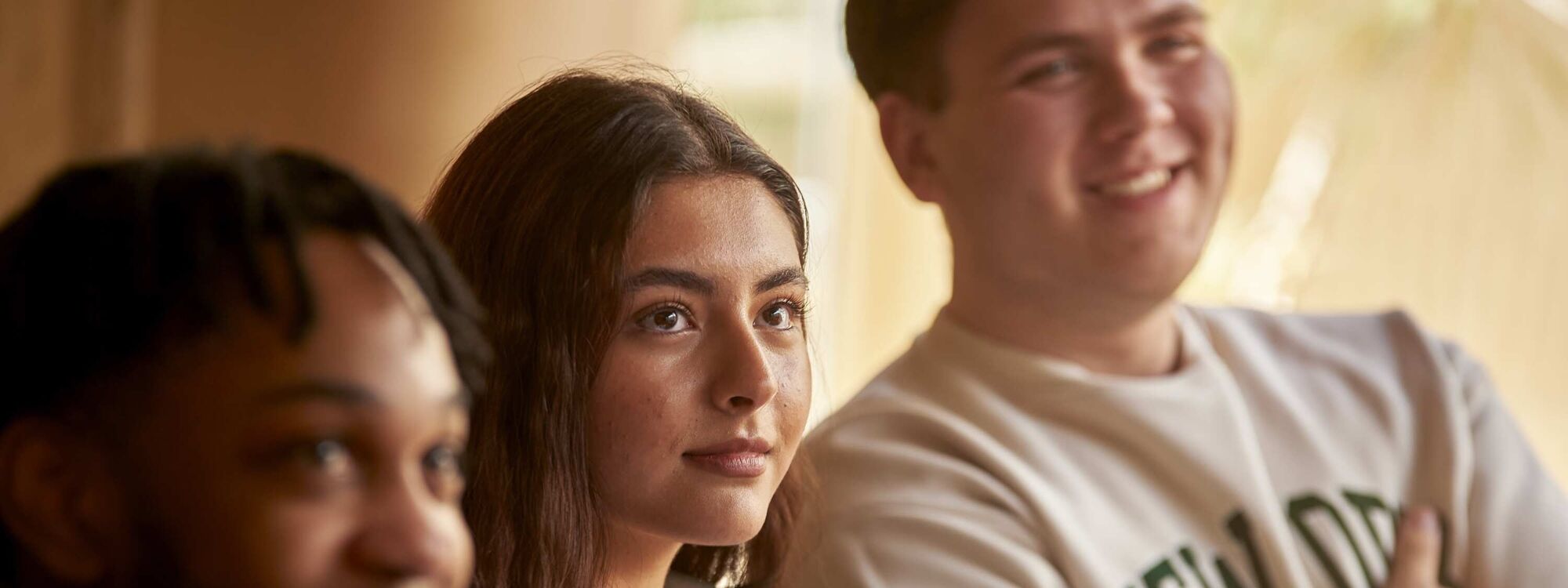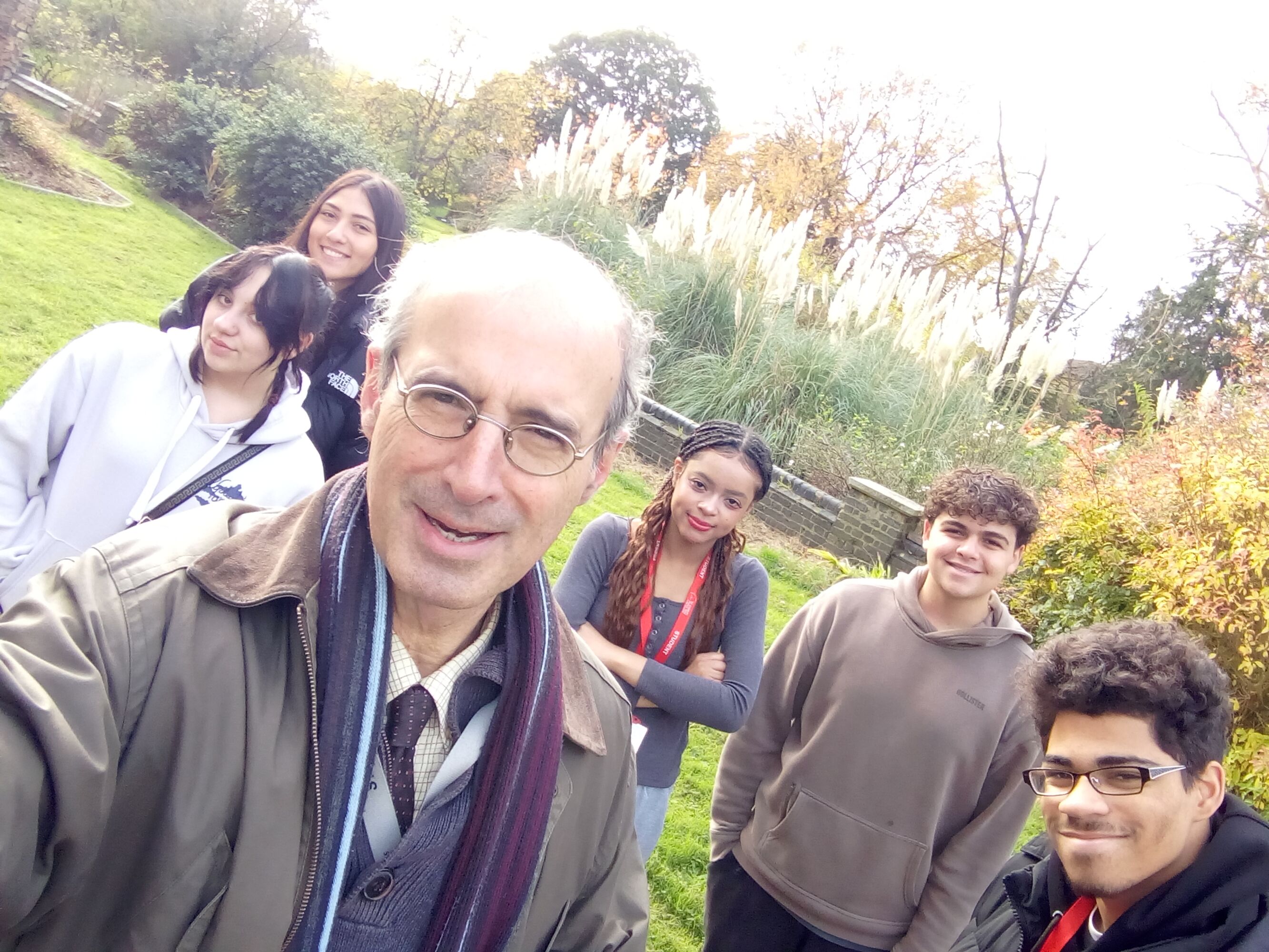- Home
- Information
- Our Catholic Ethos
Our Catholic Ethos
Chaplaincy
The Chaplaincy is a quiet, peaceful space open to all who wish to be involved and participate in the life, prayer and activities of the College Chaplaincy.
The Chaplaincy exists to serve our students and staff and witnesses to our mission statement: that “the person and teaching of Christ” is at the centre of college life. By living out this mission, the Chaplaincy supports the whole college community, welcoming and showing love to all, regardless of an individual’s faith.
Our students can get involved in charity and outreach work, seeking to put our “Leadership in Service” motto into action in the local community. There are opportunities for students to explore and develop their faith, as well as opportunities for Sacramental preparation, through our Confirmation programme.
"I enjoy being part of the Chaplaincy team because it gives me the opportunity to engage and support others, for example listening to and learning about our local Elderly community when they visited our college."
Chaplain
We have a Chaplain whose prime task is to help develop the Catholic ethos at St Charles, to find new ways of sharing the Gospel message with students and staff, based on the College’s mission statement of keeping the person of Christ at the centre of College life, and to provide both spiritual and pastoral support for the whole community.
The Chaplain’s office is in the Chaplaincy – pop in if you want to speak to him!
If you’d like to get in contact with our Chaplain, his name and email are: Howard Lowe, hlo@stcharles.ac.uk
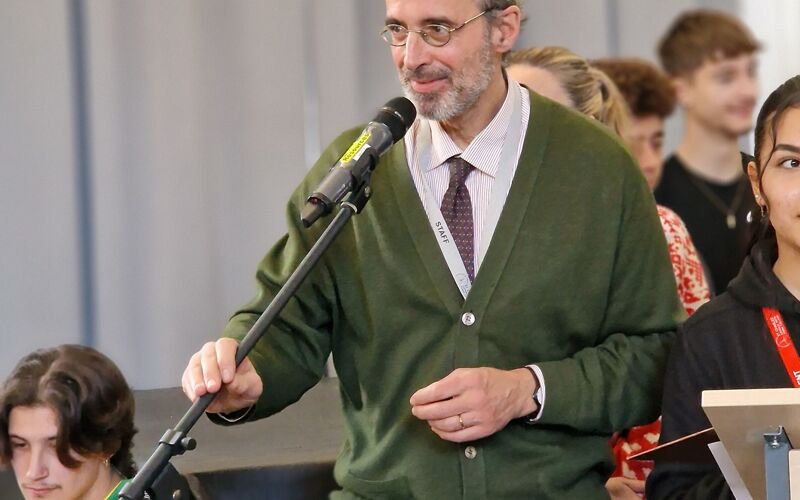
The Chapel
The Chapel is a place of worship and prayer where the Blessed Sacrament is reserved and adored.
We also have a priest chaplain, Fr Carlos Quito, Parish Priest of Our Lady, Queen of Heaven, Queensway, West London, whom we are very lucky to have with us twice a week, every Monday and Tuesday morning until after lunch, offering the Sacraments, devotions, spiritual advice and teaching.
Mass in the chapel is offered every Monday at lunch, with prayer taking place every day.
Catholic Life
Missionaries of Charity Soup kitchen
We certainly did not expect to feel such deep satisfaction, (not without a little trepidation at first) after having helped at the St Charles Square ‘Soup Kitchen’, run by the ‘Missionary of Charity’ Sisters.
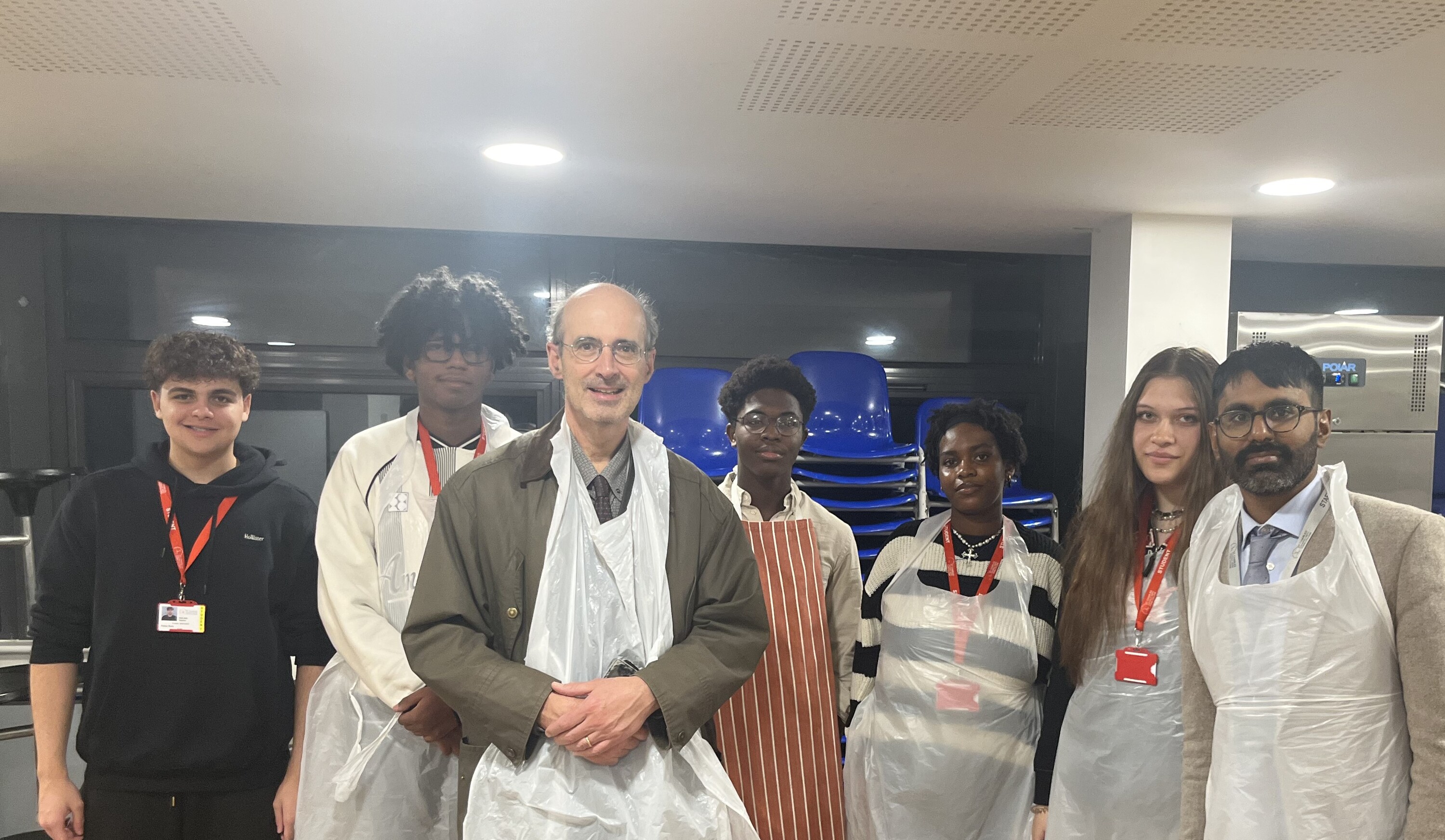
I think there was a sense that we were at the very coal-face of the Gospel, serving Christ ‘in the distressing guise of the poor’, as Mother Teresa would put it: the poor, the lonely and the hungry. The Sisters, in fact, lived up to their name and preached the Word of God, prayed and sang a hymn before letting anyone eat. Then it was all about serving good hot food, chatter, milky tea, (with or without sugar), serving seconds, filling up Tupperware jars to take away, clearing and washing up. In short, it was a privilege to be able to engage with and serve those we normally just hurriedly walk by and for that reason we hope to make it a permanent fixture on our Chaplaincy timetable.
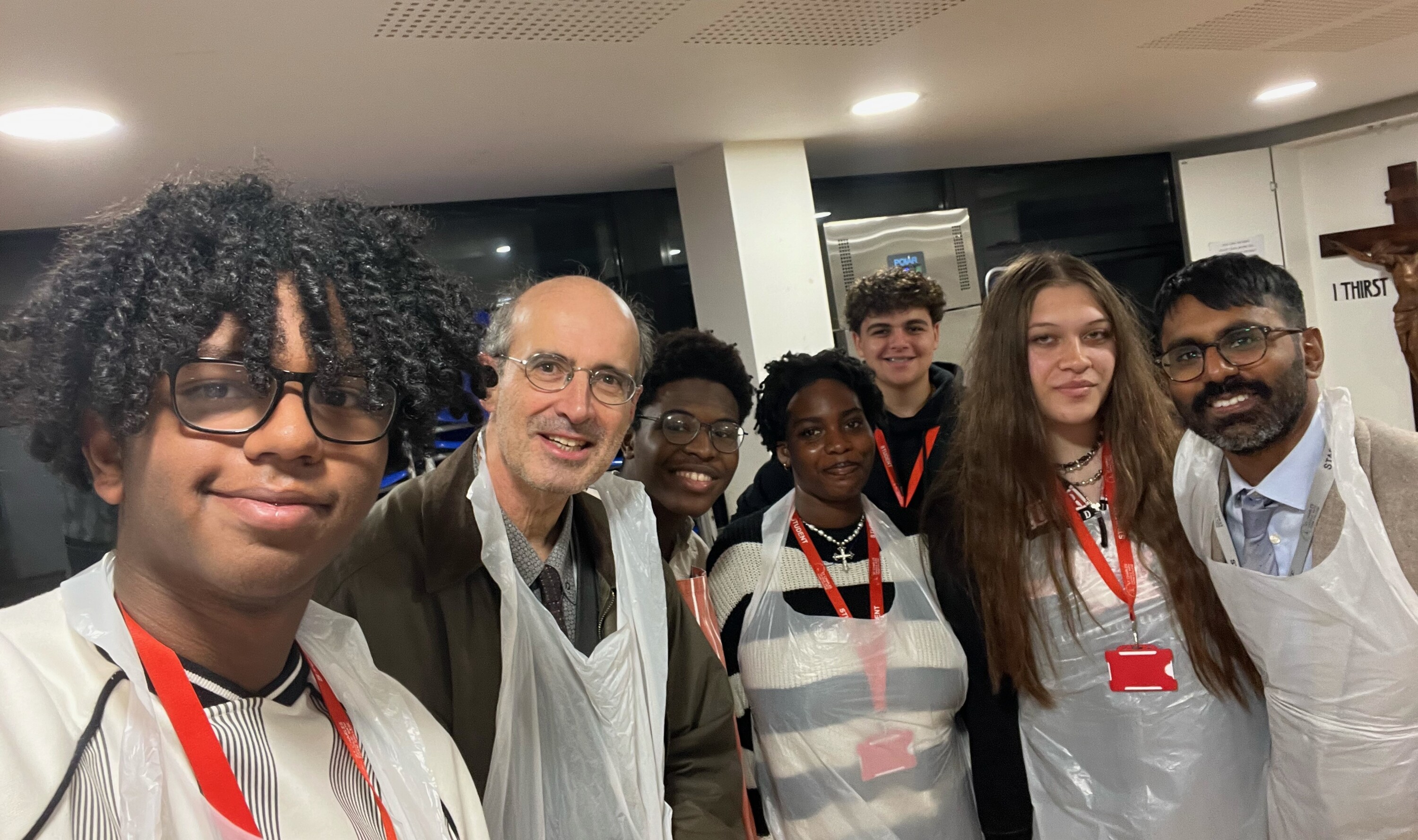
Carmelite gardening and everlasting dead leaves
You may be familiar with the myth of Sisyphus, condemned to roll a boulder up a hill for eternity, only to have it roll back down every time he nears the top: futile and hopeless labour.
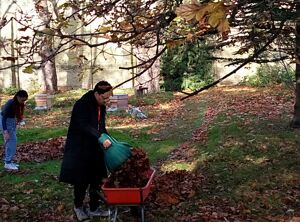
Raking endless oak or plane-tree leaves within a Carmelite monastery garden, you might be forgiven for feeling some of Sisyphus’ doom or gloom. The more leaves you rake, the more there appear to be, falling from above, unearthed from below, this year’s, last year’s, previous years’. When will it end?
For Sisyphus, never. His end knows no ending. For the Carmelites (and for their happy helpers, as we began to learn), the end is now, or within the now, the now of God’s Presence: ‘Endlessness’ making itself felt, mysteriously bringing joy, within the apparently endless wheelbarrow after wheelbarrow of freshly raked leaves.
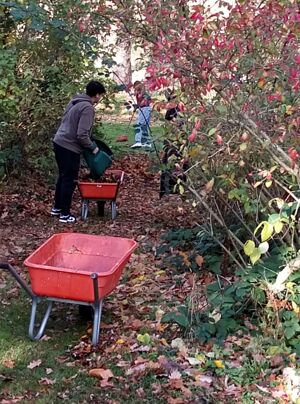
Could this be the treasure the Carmelites have discovered? Something mysteriously happy, after all, was written on their faces.
Chaplaincy tea party
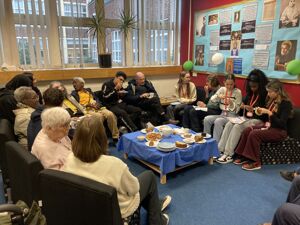
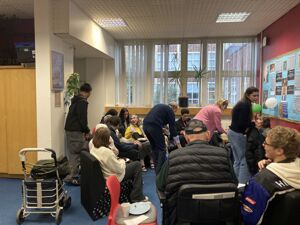
There is something about these intermittent Chaplaincy tea parties. They unfailingly fall together and the outcome, in relation to preparation time, is invariably and disproportionately worthwhile. We put in our two fish and five loaves' worth, and the blessings are multiplied. Perhaps the greatest of these is the affectionate and appreciative bonding between the elderly and the young. Stories and anecdotes are shared, dreams and aspirations revealed, amidst a homely and attentive warmth, tea and cake, antidote to often bitter loneliness and isolation. Again, the Gospel was palpably making its presence felt, the students feeling it, as well as our guests. Long may this continue!
Caritas Secondary Award for Social Action
Our Year 13 Chaplaincy Team won the Caritas Secondary award for Social Action. It was a real privilege to be at Westminster Cathedral Hall where the award ceremony took place.
The students Ava, Lulia, Lauren , Tamona and Farrah have been noted for ' volunteering at St Charles Primary School where they have devoted several hours reading with the children , developing numeracy and literacy skills . They were also commended for being trusted advocates that have helped significantly reduce anxieties for year 6 students that were transitioning to year 7- They were also fortunate to meet with our local MP Joe Powell who was really thrilled with their hard work and dedication.

Many congratulations from the RS Team and Ms Lancaster for attending the special event . We are very proud of you .
Morning Prayer
Before college lessons begin on Tuesday to Thursdays, the Chaplain leads 'Morning Prayer' in the Chapel for any staff or students who wish to come along. On Friday mornings we begin at 8.15am, in order to have time for breakfast in the Chaplaincy afterwards.

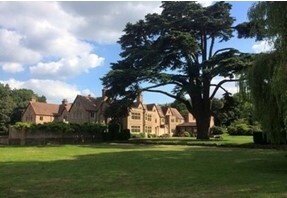
Liturgical Life
The College’s mission is to enable all its students to achieve their greatest potential, inspiring them to wisdom, compassion and leadership in service to others. We aim to achieve this in a community defined by Catholic values which has the person and teaching of Christ at its Centre.
Morning Prayer
Before college, three days a week, the Chaplain leads 'Morning Prayer' in the Chapel for any staff or students who wish to come along. On Fridays prayer and devotions are followed by breakfast in the Chaplaincy.
Mass and 'Celebration of the Word'
On Mondays at 13:00hrs Holy Mass is celebrated in the College Chapel. Every College Hall in their weekly assemblies also has a brief 'Celebration of the Word'.
Student Leadership
From our Mission Statement, the college has taken the motto Leadership in Service. Students are encouraged to use their talents especially the gift of faith, in the service of others. This will often involve taking the lead in organising activities and in liturgical celebrations, and forming part of chaplaincy committees.
Outreach and Community
Each year, students at St Charles participate in our St Charles Borromeo celebrations, at the start of November. This includes attending our St Charles Week quiz, running the stalls at our fundraising fair and participating in our Feast Day Mass.
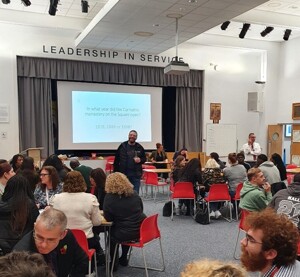
At Christmas time, the Chaplaincy runs a Christmas Hamper Appeal for the Catholic Children’s Society, our neighbours on St Charles Square. Each year, students donate over 50 hampers of food, essentials and Christmas presents for local families in need at Christmas. The hampers are presented to the Catholic Children’s Society at our annual Carol Service.
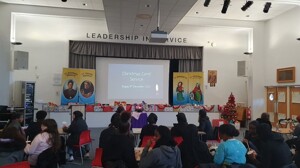
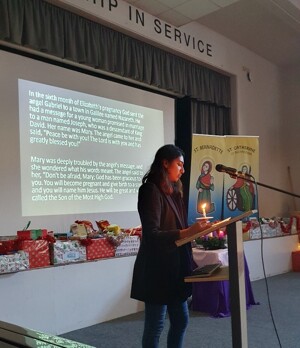
Students at St Charles also have opportunities to meet some of the elderly people in our community, through our work with the NeighbourCare group.
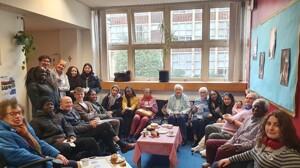
All staff, parents and visitors have a statutory responsibility to safeguard and promote the welfare of students. Please click here for more information on safeguarding.
Core RE
Core RE begins each week with a prayer and a reflection based on the Gospel and the topic or issue being explored. This forms an integral part of the lesson and experience and student feedback has shown that these reflections are meaningful for those of any religion.
One period a week of Core RE is a compulsory part of a student’s timetable at St Charles. In the lessons, students learn how to critically respond to questions of faith and ethical issues in the Church, our world and local community.
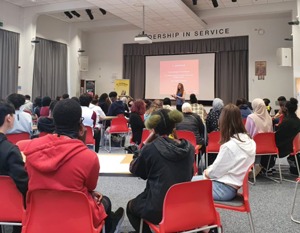
Ethics in a Catholic Context will help you to:
- Develop your critical thinking skills
- Respond to ethical issues in the world and in your lives
- Establish your own thoughts and beliefs, as well as understanding why others might think differently
- Explore and consider your own personal faith
- Learn something outside of your programmes of study
- Meet students from your Hall who study on other courses
- Gain awareness of the social problems in our community and have the opportunity to tackle them through social action projects
- Listen to external speakers from each of your Hall charities and learn the difference your fundraising makes to people in our community
- Work towards your St Charles Passport
What will I learn about?
Each lesson will focus around one of the seven principles of Catholic Social Teaching. These are principles that Catholics use to help them respond to, and interact with, the world around them, promoting and contributing to 'the common good'.
Interfaith Dialogue
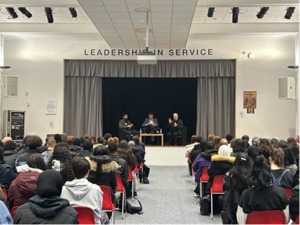
Each year, the College holds an Interfaith Week, with an Interfaith Dialogue event between a local Imam, a Rabbi and a Catholic priest.
There is also an Interfaith Prayer room in the College. This is an alternative prayer space to the Chapel, which students of any faith can use throughout the day.
All staff, parents and visitors have a statutory responsibility to safeguard and promote the welfare of students. Please click here for more information on safeguarding.
Retreats
Retreats
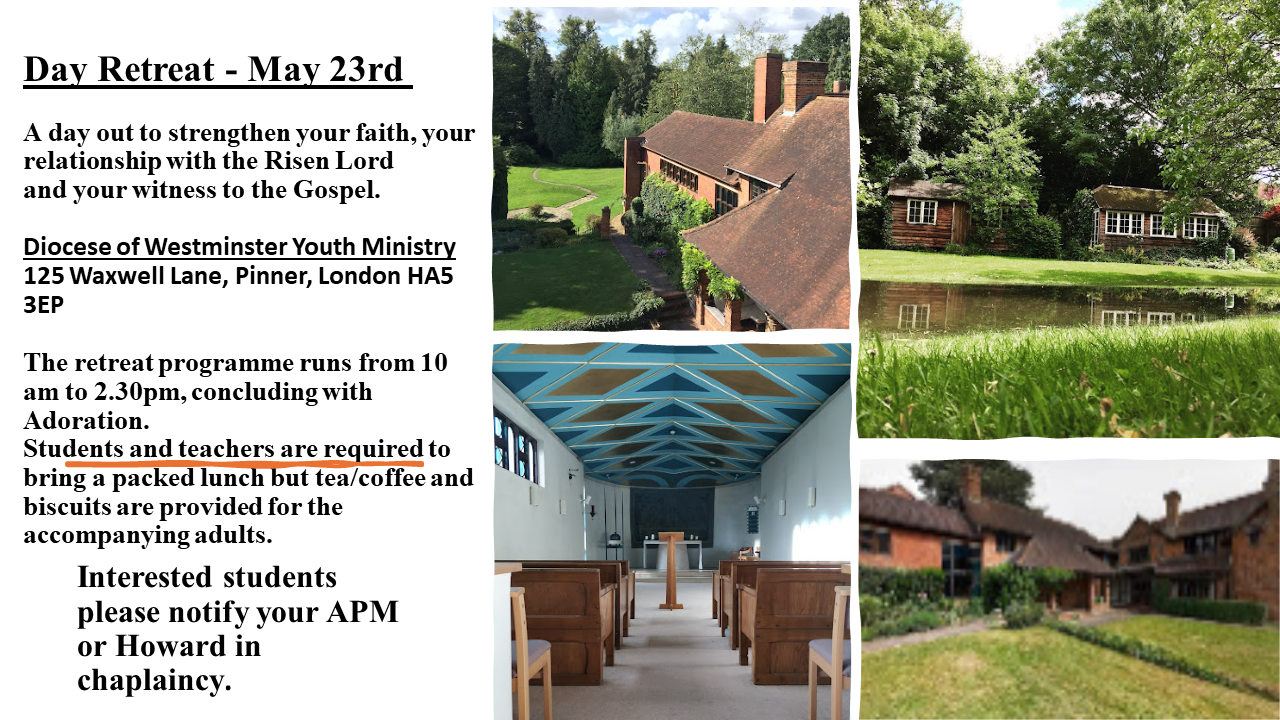
Each year the Chaplaincy takes students away on retreat, either to the SPEC Retreat Centre or St Cassian’s Centre in Kintbury, West Berkshire.
The faith-filled, rural environment of retreat centres allows our students to take stock of their lives and faith and to grow closer to God.
Kintbury was an amazing experience, it helped me develop and grow closer to God. - Yr 12 student
CAFOD Young Leaders Group
At the start of Yr. 12, students have the opportunity to join our CAFOD Young Leaders Group. Accompanied by the Chaplain, this group attends three CAFOD training days, with Sixth Formers from across London. Here they receive training on how to communicate CAFOD’s mission to students at the College. The students then meet every fortnight to plan events in the College to raise funds and awareness for CAFOD’s campaigns.
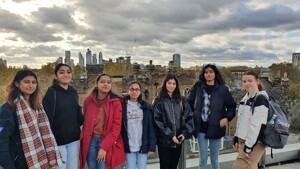
If you are thinking of coming to St Charles and want to learn more about our outreach and social justice initiatives, come along to an open day and chat to the Chaplain!
"I recently began the CAFOD group and we met the other day for an online course, which was very interesting because we talked about St Charles’s charity events (like the Hamper event and the tea party). We also listened to other schools who spoke about there events and challenges they went though organising it. Overall, it was a great experience because it showed the importance of helping the less fortunate and remembering how grateful we are to be able to have an education and clean water."
"I am a part of the CAFOD group within the chaplaincy. Joining this has given me a wider view on which parts of our worldly society is in need of help. We have met up twice and in Joining this group we have discussed different ways we could help charity’s and individuals as a school. It has a warm atmosphere and is very inviting to anyone who wants to join.
"Joining a CAFOD video conference, especially as I just started on that day, has been a truly enlightening experience. It offered a window into the global community's dedication to positive change and has shown us a new perspective on life in the context of morality and Christianity. The program encouraged us to engage in discussions and connected us with other schools within England, highlighting the collective strength behind CAFOD's impactful mission. It truly was a great session."
"I am involved in the CAFOD group and I have to say it is one of the best decisions I have made in college as the training days have not just been informative but very fun. They have allowed me to be more involved in the local community just like I am in college which has given me more confidence in myself and the insight that I can make a change for the better if I keep at it." - Muhammad
St Charles Borromeo
|
St Charles Catholic Sixth Form College is named after the counter-reformation saint, St Charles Borromeo, whose Feast Day is celebrated on the 4th November each year. Below is a brief history of St Charles’ life and his relevance to our college today… |
Born almost 500 years ago, St Charles Borromeo might seem an unlikely saint for our time, but his ministry in Milan in the 1500s speaks directly to our life in college today.
St Charles was born to a noble family near Milan in Italy. From a young age he dedicated himself to a life of service in the Church. At the age of 24 he became a priest and by 25 he was the Archbishop of Milan. Despite coming from a family of great wealth, St Charles was clear, this wealth should be used to serve the Church, not to serve himself.
Indeed, he wrote that:
“Charity is that, with which, no man is lost, and, without which, no man is saved”
This reminds us that charity is therefore not only part of our Christian duty to help those in need, but it is somehow also necessary for our own salvation. If we are to make it to heaven, we must look at our less fortunate brothers and sisters with eyes full of mercy. We must love them just as we love our friends and family.
When famine struck the city of Milan, St Charles fed thousands of people daily out of his own wealth. In fact, there are stories of him using his own tapestries to make clothes for the poor. St Charles clearly recognised that God dwells in every single person and so gave of himself for the greater good of others.
As Archbishop, St Charles embarked on some important reforms within the Church – he shut down corrupt monastic orders (which led to a failed assassination attempt on his life) and demanded that priests should take pastoral care of those entrusted to them. He saw that many of the clergy at the time were ignorant, and so he founded schools, colleges and seminaries for clergy to be educated in the truth of the Church.
But perhaps more than anything else, St Charles is a saint for our time because of his actions during the pandemic in Milan in the 1570s. In a time not too dissimilar to the Coronavirus pandemic, St Charles led his priests to care for the people of Milan. When the city officials had ran away from danger, St Charles ran towards it. He prepared himself for death, wrote his will, and went to the hospitals where cases were worst.
As a priest, St Charles administered the Sacraments to those who were dying. He gave the Eucharist to plague victims through their open windows. There’s even a story of him climbing a mound of dead bodies to give the Sacrament of the Sick to a man dying at the top.
St Charles had an unshakeable belief that God was who He said He was, that this life was not the end, and that the presence of God would comfort those dying. And he was right. The sorrow we experience in this life will not last, because we belong in heaven, where God will wipe away every tear from our eyes and there will be no more pain, death will be no more. St Charles’ life reminds us of the truth of heaven and sets out an example of how we, who take him as our patron, can get there.
St Charles, may you always watch over our little college, and guide us into the heavenly glory that God desires for us. May we follow your path and become the saints of our generation! Through Christ our Lord, Amen.
All staff, parents and visitors have a statutory responsibility to safeguard and promote the welfare of students. Please click here for more information on safeguarding.
Diocesan Inspection Report
The purpose of inspection is to report to and advise the Archbishop on the quality of classroom religious education and the Catholic life of the school. Inspection also provides an opportunity to inform parents and the wider Catholic community on the quality of religious education and the school’s efficacy as a Catholic community.
Inspection provides an opportunity to support, challenge, evaluate and promote the work of Catholic schools and colleges. It also assists schools and colleges in the work of self-evaluation and improvement, and enables the Diocese to celebrate with schools their sense of identity and their strengths as Catholic schools. Diocesan inspection also provides parents and carers with an assessment of how well a school is performing as a Catholic school.
Source: Diocesan Framework for Inspection
All staff, parents and visitors have a statutory responsibility to safeguard and promote the welfare of students. Please click here for more information on safeguarding.
Our Charities
For our students, it is important that they not only spend time on their academic work, but that they also take time to put themselves at the service of our local community through fundraising, volunteering and outreach work.
Fundraising
One of the ways students do this is through fundraising for charity. We regularly fundraise for CAFOD with, for example, 'soup and bread' fasting days. We also contribute to 'Catholic Childrens Sociery' every Christmas, through our hamper collection. Each Academic Hall is linked to a local charity, which students have opportunities to raise money for throughout the year: For instance:
Bakhita Hall:
Bakhita House: Human trafficking is a ‘crime against humanity’, and it is happening right here in London. Caritas Bakhita House offers emergency support for victims of human trafficking, providing them with the safety and support they need to begin the process of recovery and rehabilitation.
Soubirous Hall:
The Cardinal Hume Centre: The Cardinal Hume Centre enables people to gain the skills they need to overcome poverty and homelessness.
Romero Hall:
The Grenfell Foundation: The Grenfell Foundation was set up at the request of some survivors and bereaved families of the Grenfell Tower fire. They provide independent support to the former residents of Grenfell Tower, their families, dependents, and the local community.
Aquinas Hall:
The Catholic Children’s Society: The Catholic Children’s Society supports disadvantaged children and families across London, Hertfordshire and the South East. They work with individuals of all faiths and none. Their sole aim is to help those in greatest need.
Alexandria Hall:
Age UK Kensington and Chelsea: Age UK Kensington & Chelsea is an independent, local charity working at the heart of the community to make sure that older people’s voices are heard, their needs are met and their independence is supported.
